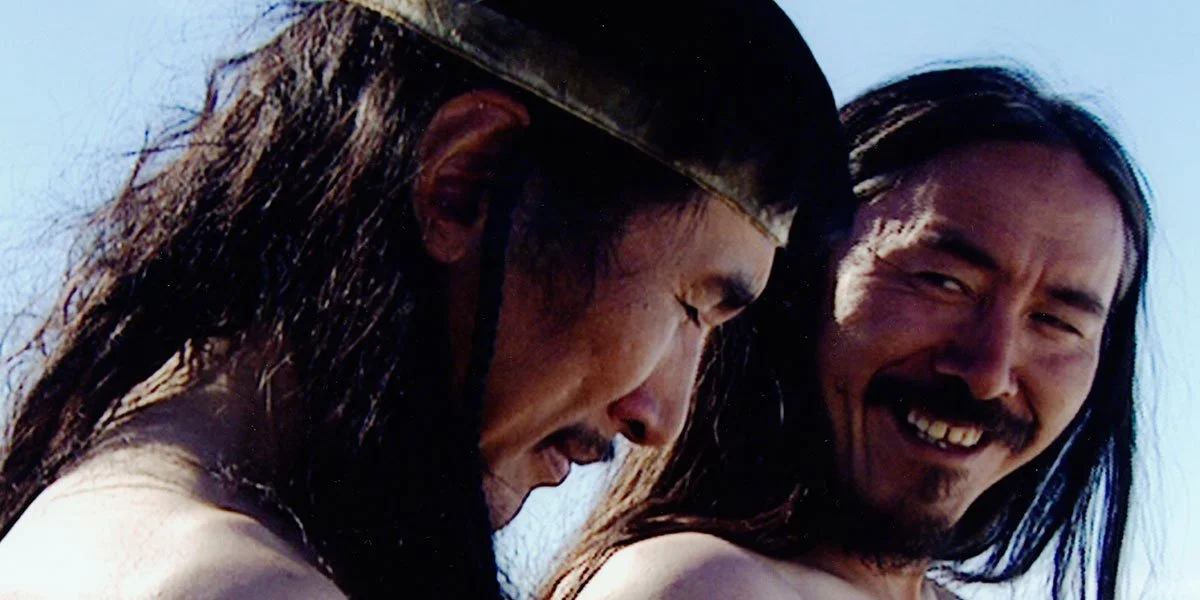National Canadian Film Day: How to Watch, From Screen to Shining Screen
By Liam Lacey
The 10th anniversary National Canadian Film Day - Wednesday, April 19 - bills itself as the world’s biggest film festival, though whether that’s number of films or geographical spread isn’t clear.
Created by Jack Blum and Sharon Corder of Reel Canada - a Toronto-based non-profit designed primarily to promote Canadian film in schools - the day involves “1,300 live events” in venues across the country with somewhere north of 700 films available online and in person.
In short, it’s a good day to catch a Canadian film, though given the many films and different formats, and a complicated web site, some planning is required.
Rick Moranis and Dave Thomas in Strange Brew, a National Canadian Film Day feature.
Here’s how to get the best of it. First, go to https://canfilmday.ca. Click on the “See A Film” tab at the top left and pick the option, Browse Canadian Films, which includes three choices: On Broadcast Platforms, On Streaming Platforms, In Theatres.
You will have more than 700 films to choose from, which can be filtered by genre, subject and something called One Voice which refers to “Films about characters from underrepresented/marginalized groups where the filmmaker shares the same identity.” Broadly speaking, that could describe most of Canadian cinema.
This isn’t Pokémon: You’re not going to catch them all. First, crack open a refreshing beverage and type “Hoser” in the search bar. You will come up with Strange Brew, the 1983 SCTV comic movie spin-off directed by and starring Dave Thomas and Rick Moranis. In case you forgot, Strange Brew was loosely based on the plot of Hamlet and trying to blackmail beer companies by putting mice in bottles. Strange Brew will be screening in 21 Canadian theatres on National Film Day, from Prince George to Bonavista.
Beyond hosers and beer: If you want to broaden your search to “beer” you will find Strange Brew, along with Michael Dowse’s 2002 mockumentary, Fubar, about a couple of Alberta headbangers (characters created by Dave Lawrence and Paul Spence), and Guy Maddin’s The Saddest Music in the World, which involves Isabella Rossellini as Baroness Port-Huntley, who wants to promote her beer company by advertising a contest to find the saddest music in the world. As you can see, it’s a remarkably slippery slope from “hoser” to fancy auteur cinema.
Expand your search to “hockey” and you’re on smooth Canadian ice, Score: A Hockey Musical, the documentaries Black Ice and Willie, the features Across the Line, Breakaway, Face-Off, Goon and, from Quebec, Junior Majeur, The Rocket, Les Boys and Les Pee-Wee.
Gently down the streaming: Go to the National Canadian Film Day homepage, click See A Film tab and then On Streaming Platforms, which will bring up 23 different streaming services who have partnered with REEL CANADA for the event. Some of them are bonanzas: CBC’s GEM offers more than 120 titles and the National Film Board site can take you down a some amazing archival rabbit holes. Here’s the catch: Some of the links haven’t been properly tested and lead to dead ends or announcements that films aren’t available.
Atanarjuat: The Fast Runner, deemed the best Canadian film of all time.
Persevere, like Canadian winter: According to the National Canadian Film Day site, example, Atanarjuat: The Fast Runner, deemed the best Canadian film of all time in a national poll of critics and filmmakers in 2015, is only listed as screening in one Mississauga library. In fact, it’s available for streaming on Netflix, CBC Gem and CTV on demand, as well as available for rent on Apple TV. With Don Shebib’s 1970 classic Goin’ Down the Road, the site summarizes it but offers no streaming theatrical or broadcast options for viewing, so why include it? Fortunately, you can see the film, freely and legally, on YouTube, or even watch a version with Shebib’s commentary track. Want to watch the most popular film in Canada in 1979? Also on CBC Gem, Richard Bell’s Brotherhood, which tells the true story of teenaged canoeists in 1926 who endured a fatal freak summer storm in the Kawartha Lakes in 1926.
The most famous Canadian Gordon after Gordie Howe. National Film Day is offering a tribute to Gordon Pinsent, the esteemed Canadian actor, writer and director who died in February at the age of 92. Organizers have focused on his 1986 film, John and the Missus, about a miner and his wife (Jackie Burroughs) who set out to save their town after the mine is closed. To see it, anyone can go online and reserve a free ticket to see the film at 7pm on Wednesday night, streaming from this National Canadian Film Day site. Or, you can see it at live screenings with accompanying Q &As by Pinsent pals Mary Walsh and Colme Feore in Ottawa, Toronto, and Vancouver.
The Scotiabank theatre is offering a Gordon Pinsent mini-marathon, including John and the Missus, The Rowdyman (both of which Pinsent wrote and directed), Sarah Polley’s Away From Her, in which he co-starred, and some of Pinsent’s early television work. Fun fact: Though considered a quintessential Newfoundland and Canadian actor, one of Pinsent’s most prominent early roles was as the U.S. president in the 1970 sci-fi cult film, Colossus: The Forbin Project.
Our home on Native land: One of the leading figures in the current wave of Canadian Indigenous cinema was Mi’Kmaw filmmaker, Jeff Barnaby, who mixed the horror genre with a political critique of Indigenous and settler-colonial relations.
He died last October at the age of 46. In tribute to him, Barnaby’s 2019 zombie film, Blood Quantum, will screen nationally on CBC GEM, ad-free for 24 hours starting at 9 am, on April 19.
Blood Quantum will screen at the Scotiabank Theatre with an in-person discussion with star Elle-Máijá Tailfeathers and moderator Jason Ryle. There will also be theatrical screenings of Blood Quantum in Vancouver, Burns Lake, B.C., Calgary, Thunder Bay and Saskatoon, with screenings of Barnaby’s previous feature, Rhymes for Young Ghouls in Whitehorse and St. John’s.
Les deux solitudes, encore: About a third of the films in this year’s event are French-language. And while several Quebec directors have achieved international renown, the two film worlds remain apart.
In Quebec, the festival informs us, 10 communities will watch the film, Chien Blanc, in independent theatres. The film, which was released in Quebec in November, 2022, is set in Los Angeles, amid the protests and social upheaval following the assassination of Dr. Martin Luther King (but shot largely in Vancouver and Montreal).
Based on the book by French novelist, filmmaker and diplomat, Romain Gary, follows his account of his marriage to the actress Jean Seberg, and how the couple, determined to be good anti-racist allies, adopted, and attempted to retrain an Alabama police dog that had been taught to attack Black people. You may recall that Samuel Fuller previously made this into a controversial film in 1981. The new version by Quebec’s Anais Barbeau-Lavalette, is reportedly more faithful to the book, in a film that should have renewed resonance in the post-Black Lives Matter era.
Big country, small world: The “telling our stories to ourselves” mandate of Canadian national media institutions has always felt a little provincial. In reality, the Canadian film industry lags only behind France in its number of international co-productions and almost a quarter of our population was born outside the country.
That means Canadian cinema is often global in its outlook (and that’s not even counting Canadian-born James Cameron.) One of Canada’s best-known transnational directors, Deepa Mehta will present her 2012 adaptation of Salman Rushdie’s Midnight Children at Toronto’s Scotiabank Theatre on Wednesday night. The event (already sold out) is a PEN benefit on behalf of Rushdie, who was attacked and wounded at an event last August. See it instead on Apple TV +, Cineplex, Crave, Starz or free on CBC Gem or Hoopla through your local library.




